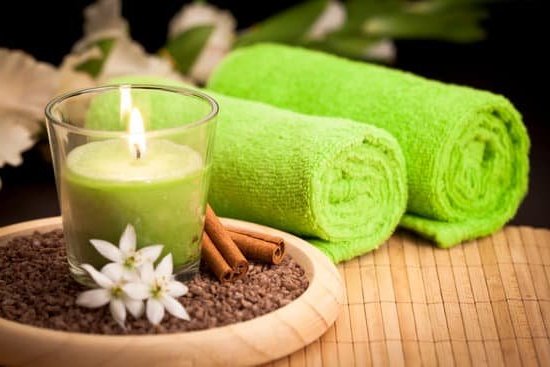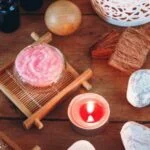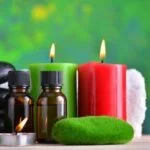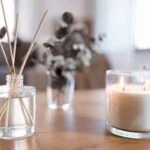Aromatherapy is a practice that has been used for centuries to promote well-being and beauty through the use of natural plant extracts known as essential oils. These oils are not only valued for their pleasant aromas but also for their potential health and beauty benefits. From reducing stress and anxiety to improving skin and hair conditions, aromatherapy offers a holistic approach to enhancing both physical and emotional well-being.
Essential oils work by stimulating the olfactory system, which sends signals to the brain that can affect mood, emotions, and even physiological functions. The effects of these oils can be calming, invigorating, or healing, depending on the specific properties of each oil. With countless essential oils available, each with its own unique benefits, aromatherapy offers a versatile tool for promoting health and beauty naturally.
In this article, we will delve into the fundamentals of aromatherapy, exploring how essential oils work and discussing their various uses for health and beauty purposes. Whether you are looking to alleviate common ailments, enhance your skincare routine, or simply create a more tranquil environment at home, incorporating aromatherapy into your daily routine can have significant positive effects on both your physical and emotional well-being.
The Science Behind Aromatherapy
Aromatherapy is a holistic healing treatment that uses natural plant extracts to promote health and well-being. The essential oils used in aromatherapy are extracted from various parts of plants, including flowers, leaves, stems, roots, or bark. These oils can be inhaled, applied topically, or even ingested in some cases to provide therapeutic benefits. The practice of aromatherapy dates back thousands of years, with ancient civilizations like the Egyptians, Greeks, and Romans using essential oils for their healing properties.
The science behind how essential oils work in aromatherapy is fascinating. When inhaled, the aroma molecules travel through the olfactory system and stimulate the brain’s limbic system. This part of the brain is responsible for emotions, behavior, sense of smell, and long-term memory.
As a result, certain essential oils can evoke positive emotions and improve mood by triggering specific responses in the brain. Additionally, when used topically, essential oils can be absorbed through the skin and enter the bloodstream to provide localized or systemic benefits depending on the oil’s properties.
One key aspect to understand about how essential oils work is their chemical composition. Each essential oil contains unique compounds that contribute to its therapeutic effects. For example, lavender oil contains linalool and linalyl acetate which are known for their calming and relaxing properties.
On the other hand, tea tree oil contains terpinen-4-ol which has antimicrobial properties making it beneficial for treating skin conditions like acne. Understanding the chemistry of essential oils is crucial in harnessing their full potential for health and beauty purposes.
| Aromatherapy Component | Benefit |
|---|---|
| Lavender Oil – Linalool & Linalyl Acetate | Calming & Relaxing Properties |
| Tea Tree Oil – Terpinen-4-ol | Antimicrobial Properties for Treating Skin Conditions |
Aromatherapy for Health
Aromatherapy has been used for centuries as a natural way to promote health and well-being. The use of essential oils extracted from plants is believed to have therapeutic properties that can help alleviate various health issues. One of the key benefits of aromatherapy is its ability to reduce stress and anxiety. Certain essential oils like lavender, chamomile, and bergamot have calming effects that can help relax the mind and body.
In addition to stress relief, aromatherapy can also aid in pain management. Essential oils like peppermint and eucalyptus have analgesic properties that make them effective in reducing pain, whether it be headaches, muscle aches, or joint pain. Not only does aromatherapy offer relief from physical symptoms, but it also helps improve mental clarity and focus. Oils such as rosemary, lemon, and frankincense are known for their ability to enhance cognitive function and concentration.
Furthermore, aromatherapy can support the immune system by boosting the body’s natural defense mechanisms. Tea tree oil, known for its antimicrobial properties, is commonly used in aromatherapy to help fight off infections and support overall immunity. With its wide range of benefits spanning from emotional well-being to physical health, it is no wonder why aromatherapy is considered a holistic approach to promoting both health and beauty.
Aromatherapy for Beauty
Aromatherapy is not only beneficial for health but also plays a significant role in enhancing beauty, particularly in skincare and haircare. Many essential oils are known for their properties that can improve the condition of the skin and hair, making them look healthier and more radiant. From reducing acne breakouts to promoting hair growth, aromatherapy has a variety of benefits for overall beauty.
When it comes to skincare, essential oils like lavender, tea tree, and rosehip are popular choices due to their anti-inflammatory, antibacterial, and hydrating properties. These oils can help soothe irritated skin, reduce redness, fight acne-causing bacteria, and keep the skin moisturized. Incorporating them into your skincare routine through products like serums or facial mists can provide a natural and effective way to address common skin concerns.
In terms of haircare, essential oils such as peppermint, rosemary, and cedarwood are known for stimulating hair follicles, improving circulation to the scalp, and balancing oil production. This can result in stronger, healthier hair with added shine and volume. By using these essential oils in DIY hair masks, scalp treatments, or diluted in carrier oils for massages, you can reap the benefits of aromatherapy for your hair as well.
| Essential Oil | Main Benefit |
|---|---|
| Lavender | Anti-inflammatory and soothing properties for the skin |
| Tea Tree | Antibacterial effects that combat acne-causing bacteria |
| Rosehip | Hydrates skin and promotes healing for scars or blemishes |
Top Essential Oils for Health and Beauty
Aromatherapy has long been used for its holistic benefits in improving both health and beauty. Essential oils, derived from plants, are the foundation of aromatherapy and have been valued for their therapeutic properties for centuries. In this section, we will explore some of the top essential oils that are commonly used for promoting both health and beauty.
Lavender Oil
Lavender oil is widely known for its calming and relaxing properties, making it a popular choice in aromatherapy for reducing stress and anxiety. Its soothing scent can also help promote better sleep, making it beneficial for overall health. In terms of beauty, lavender oil is known for its skin-healing properties and can be used to alleviate skin conditions like acne and eczema.
Tea Tree Oil
Tea tree oil is renowned for its antimicrobial and anti-inflammatory properties, making it an excellent choice for combating acne and other skin issues. It is often used in skincare products due to its ability to soothe irritated skin and treat blemishes effectively. Additionally, tea tree oil is believed to have immune-boosting benefits when diffused or applied topically.
Rosemary Oil
Rosemary oil is not just a culinary herb but also a powerhouse essential oil with numerous health benefits. It is often used in aromatherapy to improve concentration, memory retention, and mental clarity. When applied topically, rosemary oil can help stimulate hair growth and improve scalp health, making it a popular choice in haircare products.
These are just a few examples of the many essential oils that can be incorporated into your daily routine to enhance both your health and beauty naturally through the power of aromatherapy. Experimenting with different oils and finding what works best for you can help you tailor your own personal aromatherapy regimen for overall wellness.
How to Use Essential Oils Safely and Effectively
Aromatherapy can be a powerful tool for promoting both health and beauty when used safely and effectively. Essential oils, the cornerstone of aromatherapy, contain natural compounds that have been found to offer various benefits for the mind, body, and skin. When properly utilized, essential oils can help reduce stress, improve mood, alleviate symptoms of certain ailments, and enhance overall well-being.
To use essential oils safely, it is crucial to properly dilute them before applying them to the skin. Essential oils are highly concentrated and can cause irritation or sensitization if applied directly in their undiluted form.
It is recommended to mix essential oils with a carrier oil such as coconut oil or almond oil before using them in massage blends or skincare products. Additionally, conducting a patch test on a small area of skin before using an essential oil more broadly can help determine if there is any adverse reaction.
When it comes to effectively using essential oils for health and beauty benefits, inhalation methods such as diffusing oils in a room or inhaling them directly from the bottle can be beneficial for mental well-being. For topical applications like skincare or massage therapies, blending essential oils with carrier oils or adding them to bathwater can help reap the full benefits without causing harm.
Understanding the specific properties of each essential oil and their intended uses is key to incorporating them into your daily routine for optimal results in enhancing both health and beauty.
DIY Aromatherapy Recipes for Health and Beauty
Aromatherapy is a versatile practice that offers a range of benefits for both health and beauty. Creating your own DIY aromatherapy blends can be a fun and rewarding way to harness the power of essential oils for specific purposes. Whether you’re looking to boost your mood, alleviate stress, or enhance the radiance of your skin, there’s a DIY recipe out there for you.
Here are some simple yet effective DIY aromatherapy recipes to help you incorporate the healing properties of essential oils into your daily routine:
- Relaxing Bath Soak: Create a luxurious bath experience by adding 5-10 drops of lavender essential oil and 1/2 cup of Epsom salts to warm bathwater. Soak for at least 20 minutes to unwind and relax after a long day.
- Revitalizing Face Mask: Mix 2 tablespoons of yogurt with 1 tablespoon of honey and 2 drops of tea tree essential oil. Apply this mask to your face, leave it on for 15 minutes, then rinse off with warm water to purify and refresh your skin.
- Energizing Room Spray: Combine 1/2 cup of distilled water with 10 drops each of peppermint and lemon essential oils in a spray bottle. Shake well before misting it around your home or workspace to uplift your mood and increase focus.
By incorporating these DIY aromatherapy recipes into your daily self-care routine, you can experience the myriad benefits that essential oils have to offer for both health and beauty. Experiment with different combinations of oils to find what works best for you and enjoy the soothing effects they provide.
Incorporating Aromatherapy Into Your Daily Routine for Overall Wellness
Aromatherapy can be a powerful tool for promoting overall wellness and enhancing both health and beauty. By incorporating essential oils into your daily routine, you can experience a range of benefits that go beyond just their pleasant scents. Whether you are looking to improve your mental clarity, reduce stress, or enhance the health of your skin and hair, aromatherapy offers natural solutions that can support your well-being.
To start incorporating aromatherapy into your daily routine, consider the following tips:
- Diffuse essential oils: Invest in a high-quality diffuser to fill your space with the therapeutic aroma of essential oils. This not only freshens up the room but also allows you to inhale the beneficial properties of the oils.
- Create personalized blends: Experiment with blending different essential oils to create a custom scent that suits your preferences and addresses specific wellness concerns. For example, combining lavender and chamomile can promote relaxation and better sleep.
- Use essential oils in skincare rituals: Many essential oils have skincare benefits, such as tea tree oil for acne-prone skin or rose oil for anti-aging effects. Add a drop or two to your cleanser, moisturizer, or facial oil for added benefits.
In addition to these suggestions, you can also incorporate aromatherapy into your daily self-care routines such as massages, baths, or meditation practices. The key is to find what works best for you and consistently incorporate aromatherapy into your daily life. As you begin to experience the positive effects of essential oils on both your physical and mental well-being, you’ll see how powerful aromatherapy truly is for health and beauty.
Conclusion
In conclusion, it is clear that aromatherapy is a versatile and powerful tool for both health and beauty. The use of essential oils in aromatherapy has been shown to provide numerous benefits, from promoting relaxation and reducing stress to improving skin and hair health. By understanding the basics of aromatherapy and the science behind how essential oils work, individuals can harness the power of these natural remedies to enhance their overall well-being.
When it comes to using aromatherapy for health, essential oils can be utilized in various ways such as through diffusers, topical application, or even inhalation. Different essential oils offer unique benefits, whether it’s relieving headaches, boosting immunity, or aiding in digestion. Additionally, integrating aromatherapy into daily routines can help individuals maintain balance and improve their quality of life.
Similarly, incorporating aromatherapy into beauty routines can also yield significant results. Essential oils have been found to have potent antioxidant and antimicrobial properties that can benefit the skin and hair. From reducing acne and inflammation to promoting hair growth and scalp health, the possibilities are endless.
By exploring different DIY recipes and discovering which essential oils work best for specific concerns, individuals can tailor their beauty regimen to address their unique needs effectively. In essence, aromatherapy truly is a holistic approach to achieving both health and beauty goals naturally.
Frequently Asked Questions
Is Aromatherapy a Cosmetic?
Aromatherapy is not considered a cosmetic but rather a holistic healing treatment that uses natural plant extracts to promote health and well-being. While it may be used in cosmetic products, its primary focus is therapeutic.
Does Aromatherapy Have Health Benefits?
Aromatherapy is believed to have various health benefits, such as reducing stress, improving sleep quality, alleviating headaches, and boosting mood. The essential oils used in aromatherapy are thought to have medicinal properties.
What Is Considered Aromatherapy?
Aromatherapy involves the use of essential oils extracted from plants to promote physical, emotional, and mental well-being. These essential oils can be inhaled, applied topically, or even ingested under the guidance of a trained professional for therapeutic purposes.

Are you looking for a natural way to improve your health and wellbeing?
If so, aromatherapy may be the answer for you.





